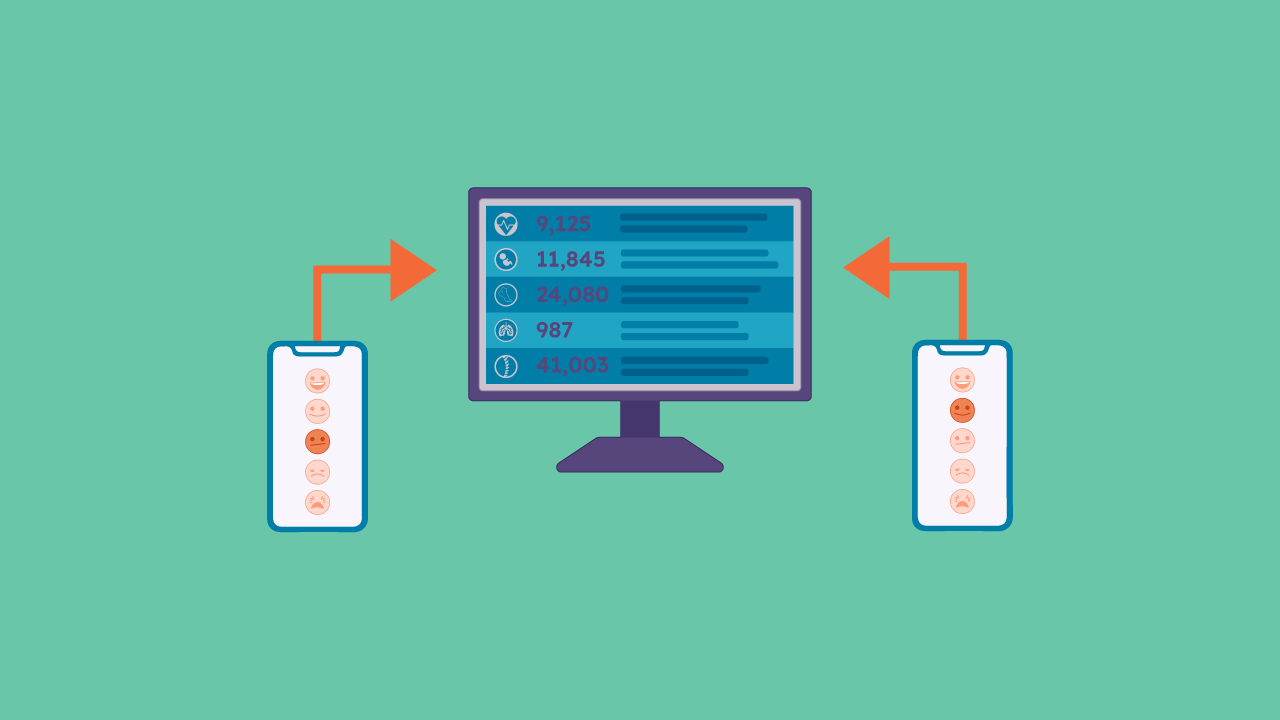Patient-centered care is the cornerstone of modern healthcare, ensuring that patients are at the heart of every medical decision. As a tool that strengthens the voice of the patient, enabling a deep understanding of their health status and treatment experiences, Patient Reported Outcomes (PROs) are directly connected to this approach.
PROs are self-reported measures that provide insights into a patient’s health status without any interpretation by a clinician. They offer a platform for patients to report their health status, symptoms, and treatment efficacy. This information is critical in guiding clinical decisions and assessing the quality of care, so if you’re still not using PROs in your medical practice, it’s high time to consider their undeniable impact.
The Significance of Using PROs at Your Healthcare Organization
PROs are reshaping the dynamics of doctor-patient interactions, allowing for a more holistic view of health that incorporates the patient’s perspective. They offer a range of uses, from the preliminary assessment stages to long-term follow-ups, ensuring comprehensive and patient-centric care.
Here’s a closer look at the diverse and significant ways PROs can contribute to your healthcare organization:
Pre-Treatment Evaluations
Before determining the need for a medical procedure or treatment, using PROs helps you assess patients’ overall health and identify any specific areas of concern. For example, you may administer a questionnaire to patients to assess their pain levels, mobility, and other physical symptoms. With this information, you can determine the best course of action for the patient, such as prescribing medication or recommending physical therapy.
Risk Identification
When patients provide firsthand insights about their health, it becomes easier to spot potential red flags. Using PROs allows you to identify patients who may be at higher risk for certain health conditions or complications. You can ask them about their family history of certain diseases or assess their risk factors for conditions such as heart disease or diabetes. By tapping into this kind of self-reported data, you can foresee risks and develop a personalized care plan aligned with the patient’s specific health risks and needs.
Monitor and Adjust
Once a patient undergoes a procedure, how do you keep track of their recovery? How do you measure the success of the treatment? By using PROs.
Having patients fill out questionnaires before and after treatments gives you direct insights into their pain levels, changes in mobility, and various symptoms. It’s like having a constant pulse on the patient’s state of health, allowing for timely adjustments and refinements to their care strategy. This way, healthcare isn’t just provided — it’s tailored to each patient’s needs.
Evaluate Long-Term Outcomes
The value of a treatment isn’t just in its immediate results. Using PROs allows you to follow up with patients several months or years after a surgical procedure to assess their overall health and quality of life. This information helps you analyze the long-term benefits and risks of different treatment options and guide future care decisions more effectively.
Improve Patient Satisfaction and Engagement
Beyond their clinical applications, using PROs can help you improve patient satisfaction and engagement. By giving patients a standardized way to report their health status and symptoms, PROs help patients feel more involved in their care and more empowered to make decisions about their health. PROs also provide patients with valuable feedback about their progress and help them set realistic goals for their health.
Challenges of Using PROs
While the benefits of using PROs are numerous, integrating them seamlessly into medical practices isn’t without challenges.
The cornerstone of using PROs is patient feedback, which inherently comes with a degree of subjectivity. Every patient perceives and communicates their pain, discomfort, or well-being differently. Sometimes, this can pose a challenge to clinicians who strive for objective and consistent data. Also, not all patients will be familiar with medical jargon or understand the questionnaire, so misinterpretations can lead to inaccurate data. To overcome this and ensure the accuracy and reliability of PROs, you may need to invest in training and resources. Workshops, illustrated guides, or even one-on-one sessions can help patients understand how to use the questionnaires and report their health status accurately.
Another challenge when it comes to using PROs revolves around integrating them into existing clinical workflows. They may require additional time and resources to collect and score, which can be a barrier to their use in busy medical practices. That’s why you may need to invest in technology and other resources to streamline the administration of PROs and ensure that they are smoothly incorporated into your well-established system.
Finally, not all patients will consistently provide feedback. Some might skip sessions, leading to gaps in data. To prevent this, you need to use reminders, make the PRO process as simple as possible, and perhaps even incentivize participation for more consistent and standardized data collection.
Improve Patient Care by Using PROs
Using PROs places patients at the heart of their care and also lays the foundation for more informed, personalized, and efficient treatment plans. As patient experiences and outcomes continue to grow in significance, PROs are set to play an ever-growing role.
However, the implementation of PROs isn’t an easy task, but to overcome challenges effectively and maximize the potential of using PROs, you can turn to SocialClimb’s comprehensive healthcare marketing platform.
SocialClimb offers an automated system that sends out patient satisfaction and PRO surveys, either via email or text message. This automation eliminates manual administrative burdens, ensuring consistent feedback collection. Also, user-friendly, intuitive survey designs guide patients through the feedback process, potentially improving the accuracy of responses.
Yet, collecting patient data is just one side of the coin, and analyzing it effectively is equally crucial. SocialClimb’s robust analytics tools sift through data to extract actionable insights. Recognizing patterns and trends enables you to refine your services, address patient concerns directly, and ultimately improve overall patient satisfaction.











